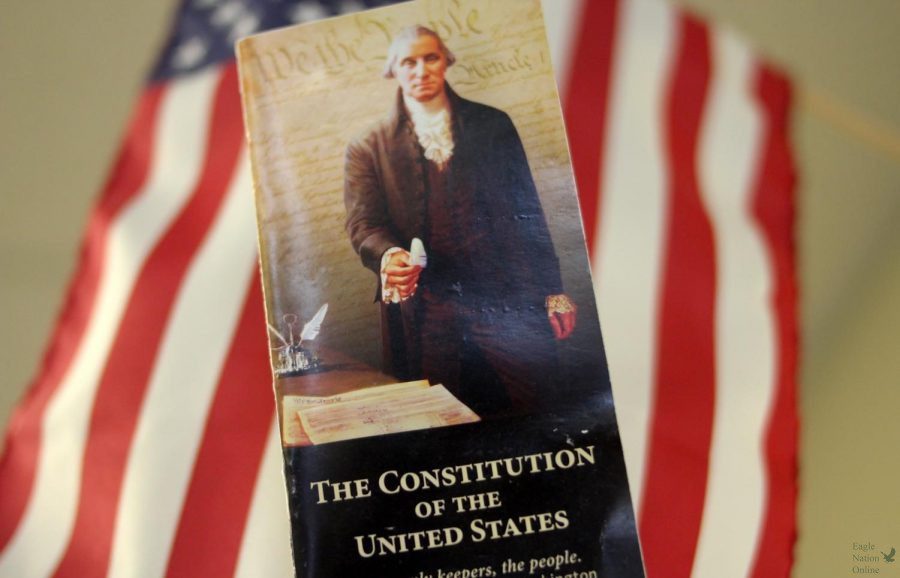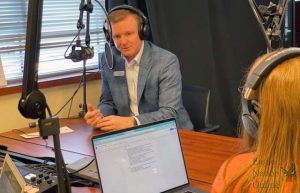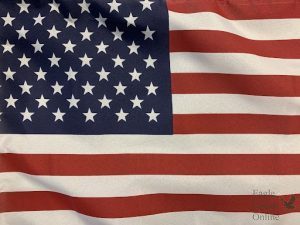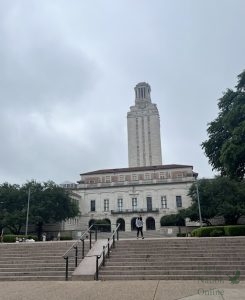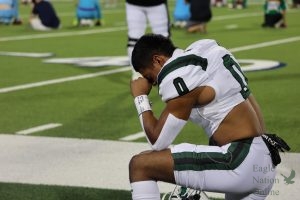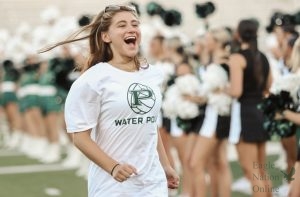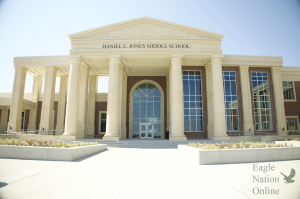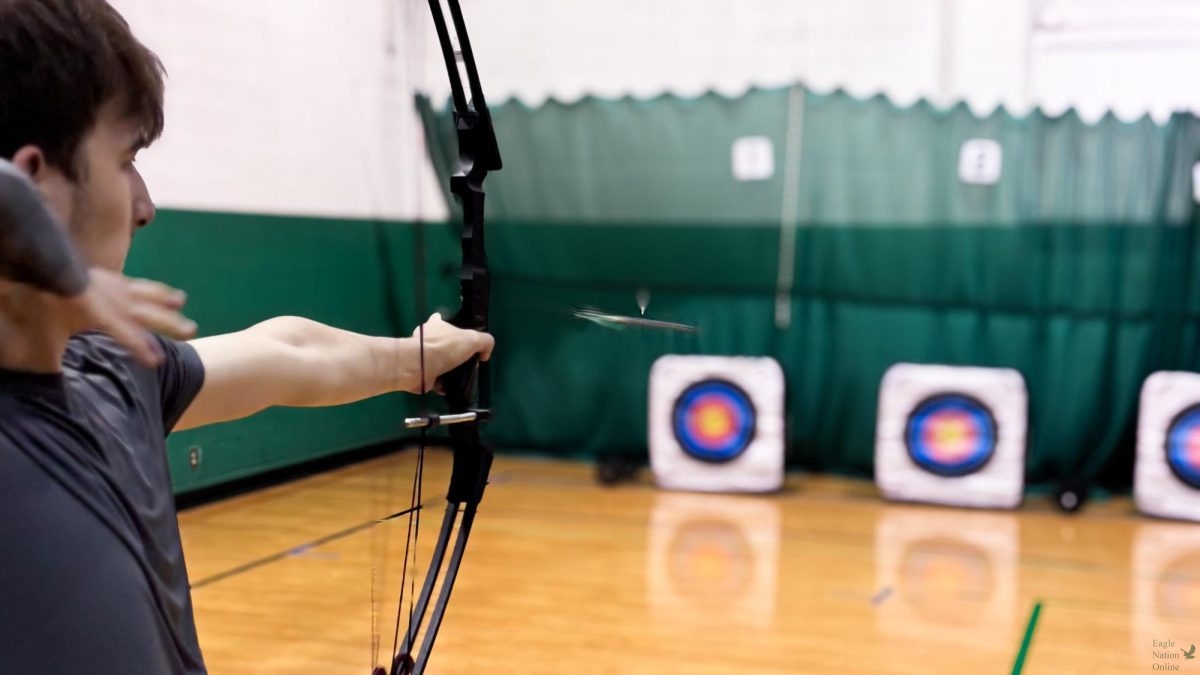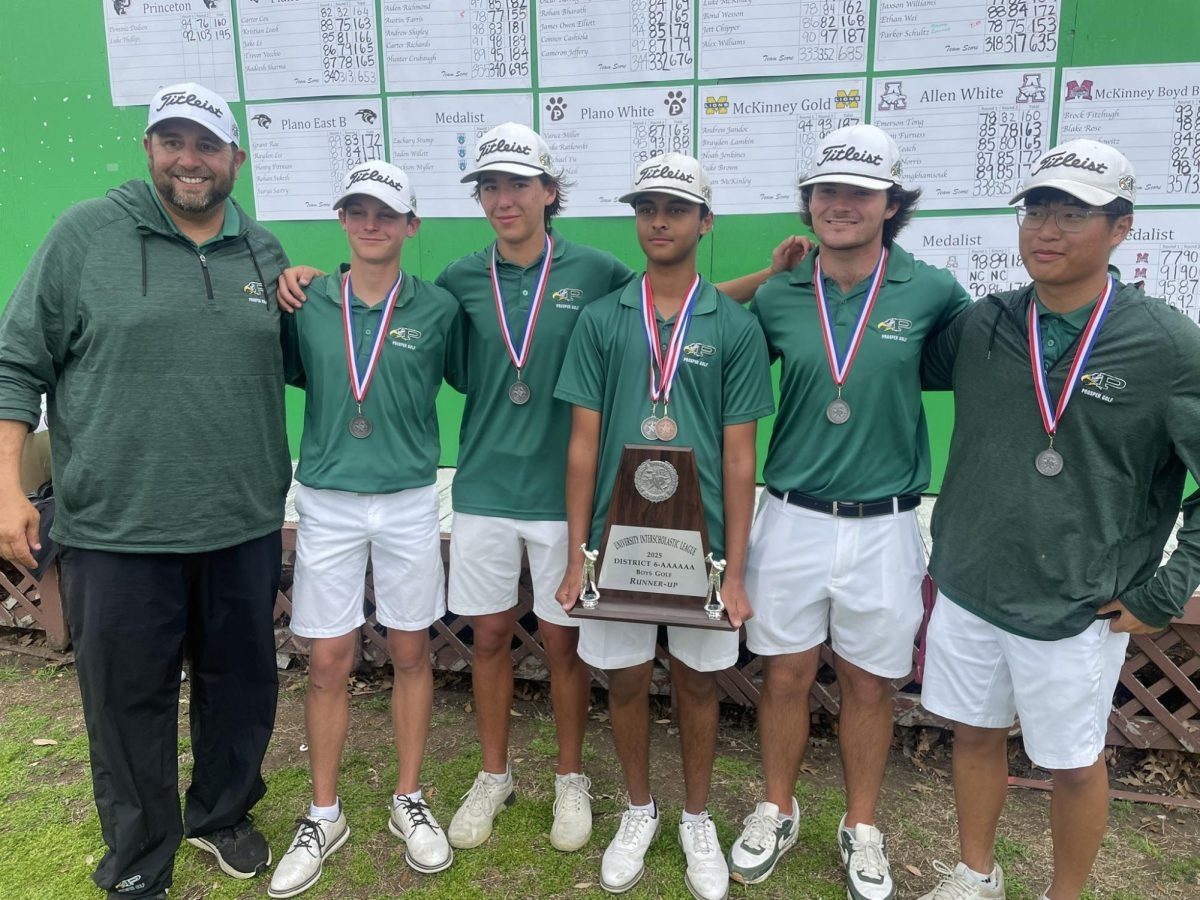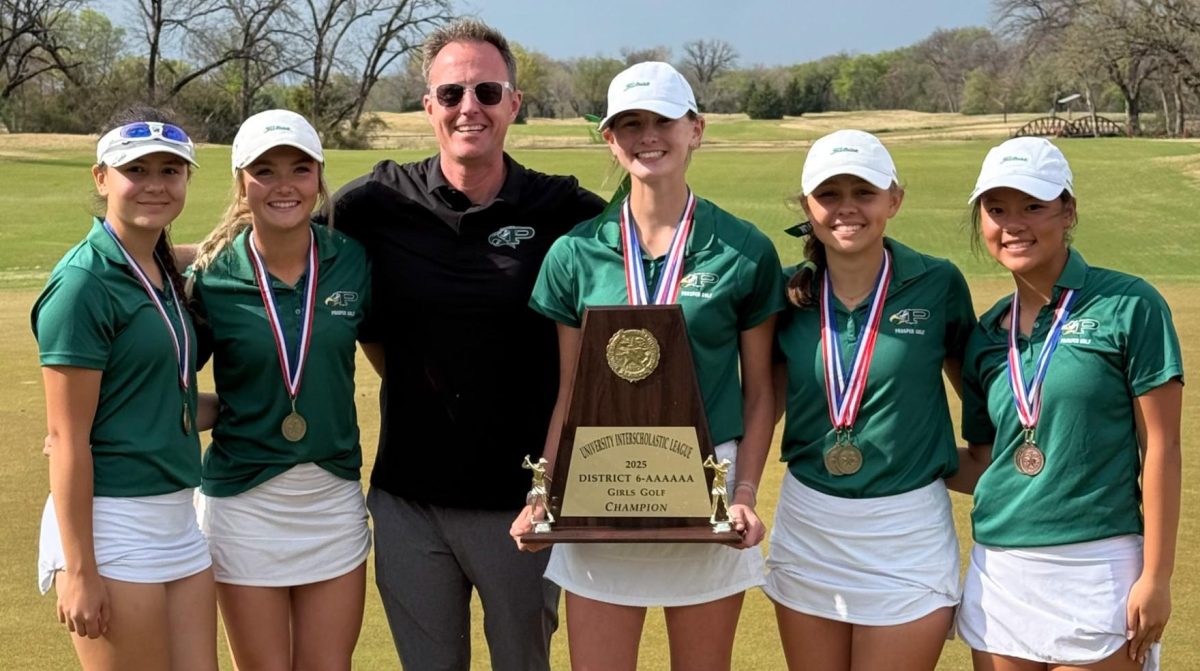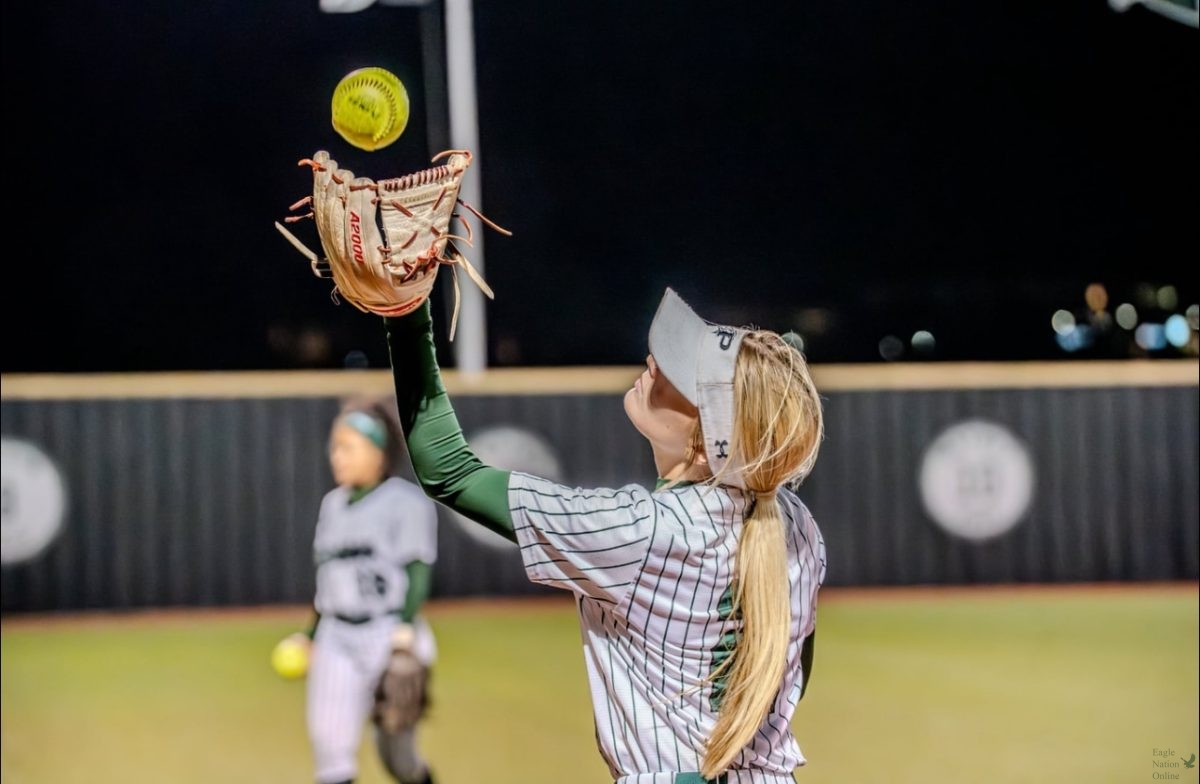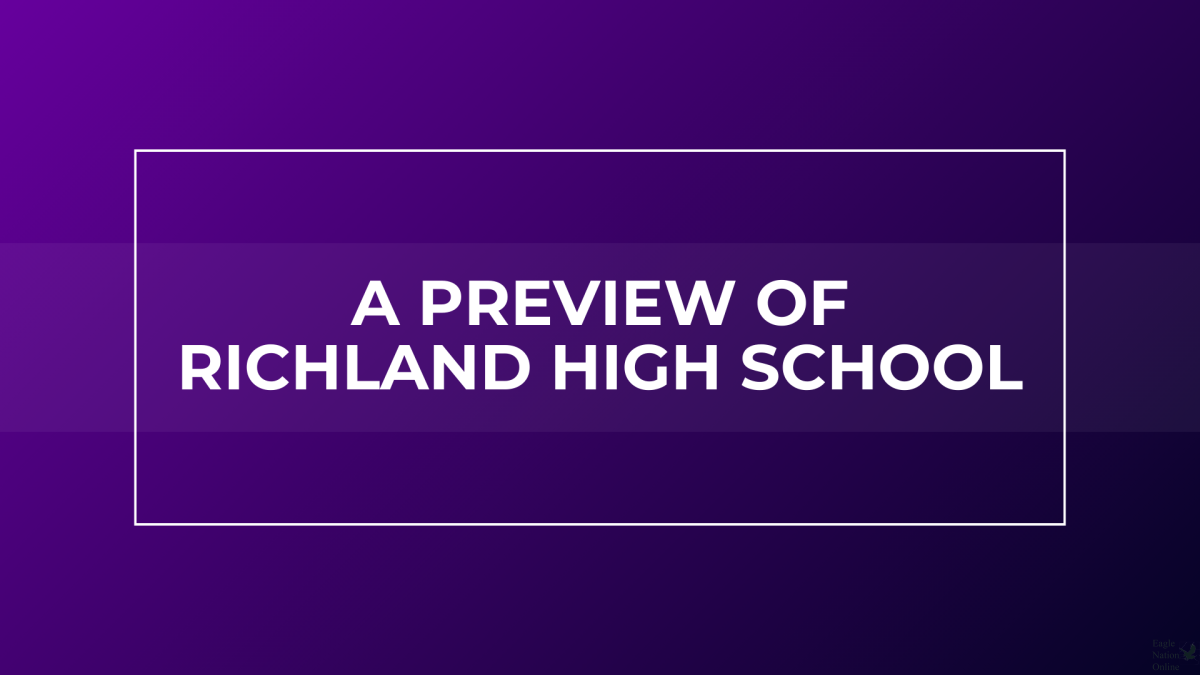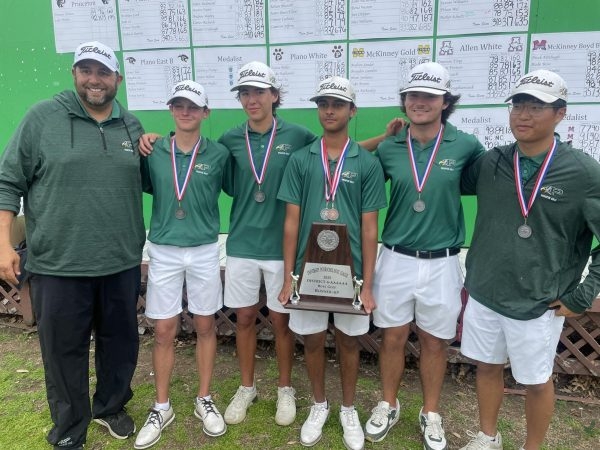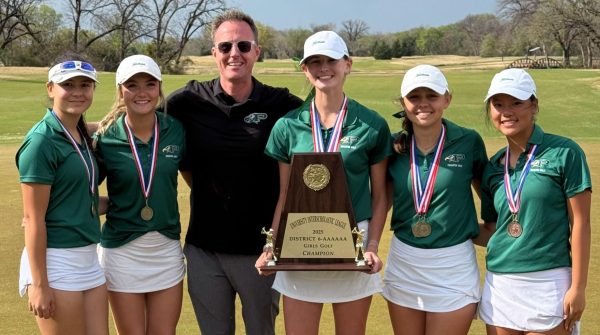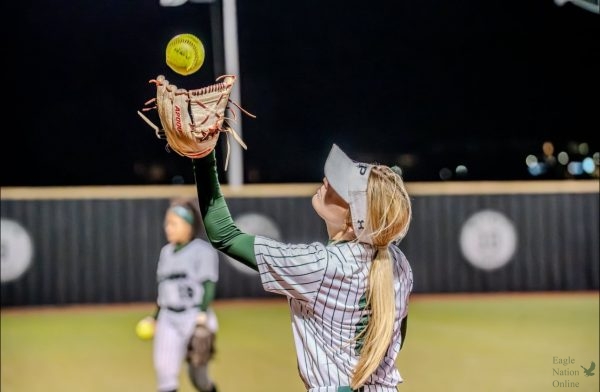Constitution Day: First Amendment rights apply to students
District lawyer Jeff Crownover provides perspective for readers
With the American flag in the background, a pocket copy of the U.S. Constitution is held high. Constitution Day is Sept. 17. Constitution day marks the start of Freedom Week.
September 17, 2021
Junior varsity cheerleader Brandi Levy failed to make her Pennsylvania school’s varsity cheer team in 2017, prompting her to express her disappointment with “vulgar” insults toward her school on Snapchat. Mahanoy Area High School officials suspended Levy from the junior varsity team for what they deemed as “disruptive behavior,” and her family decided to take the case to court.
Now, four years later, Levy’s Supreme Court case concluded in June, with the court ruling 8-1 in her favor. With today’s political climate, Prosper students said that the ruling has led them to wonder where their First Amendment rights stand once they walk through the school doors.
District lawyer Jeff Crownover said students can use their First Amendment rights in school. But, the Supreme Court rulings hold that consequences can come if student actions disrupt school operations. If an act of protest or free speech causes a substantial disruption, then a student can be subject to discipline.
“More often than not, we would prefer to not jump to disciplining a kid, if we can help it,” Crownover said. “A lot of times, just sitting a student down saying, ‘Hey, listen, I know you’re 16, but let me just explain to you that when you do this, it may seem like it’s funny or it feels good in the moment. You’re creating a permanent record, even when it’s deleted, things get screenshotted.'”
In the case of Levy, her act of free speech happened outside of school on social media. If a student in Prosper speaks against topics relating to the district outside of school, Crownover said that they may be subject to discipline if it impacts what happens in school.
“For example, let’s say a student posts something, and it makes its way back to school, and there’s a big fight in the cafeteria based on something that kid said,” Crownover said. “It caused a huge disruption at school, so now the school may be able to come in and discipline. Because, even though it was outside of school, it affected what happened in school. If you say something and an administrator just doesn’t like it, then that’s where it gets more gray.”
Crownover said that many issues surrounding the First Amendment in regard to school happen on social media.
“When you get to social media, that just gets amplified really quick,” Crownover said. “It’s not uncommon for there to be situations where a student does something outside of school, and then the question is, from an administrative standpoint, is what, if anything, should we do about that? If a teacher or administrator sees something that they think is inappropriate, they want to do something about it, but then we have to take a step back and think, ‘Is this really a school issue?’ Or is it just more of we need to talk to the student and counsel the student to say, ‘Hey, this is a bad idea’ versus actual discipline?”
Protesting
While protesting and free speech are allowed and protected if done in a non-disruptive manner, junior Hudson Matlock said he believes that protesting should be done on a student’s personal time, and not in the classroom or at a school event.
“Students should have the right to protest, but not in the educational environment where it’s not necessary,” Matlock said. “The First Amendment, to me as a student, means that anyone can express their political identity and how they stand when it is necessary. A football game in front of thousands, including current military, veterans, and first responders is flat-out disrespectful. We are lucky enough to be in a country where we can express our views, and should not have that taken for granted.”
Despite the fact that students are allowed free speech in school, some students said that they do not “feel” safe or supported to exercise their First Amendment rights at school.
“I have only in a handful of classrooms and occasions felt my First Amendment right upheld in Prosper High School or really any public school,” senior Hailey Hamilton said. “I rarely feel like in the presence of authority I can speak freely.”
Handling controversial topics
Hamilton said she believes controversial topics need to be discussed in school but need to be handled in a way that teaches students to hold civil conversations.
“It’s a maturity issue rather than should we or should we not uphold the First Amendment right,” Hamilton said. “Instead of teaching maturity, our teachers would rather avoid the conversation altogether.”
Matlock also said controversial topics should be discussed in school so that students can learn civility.
“Questions should not be worded in supporting one party,” Matlock said. “Teens all the time are blinded and misguided by social media, and never really understand what’s going on in our country because of liberal ideology and biased media.”
According to Crownover, there are more rules in place surrounding the First Amendment for staff members. In social studies courses, for example, topics can quickly become controversial, and he said that a teacher’s personal opinion shouldn’t be important.
“It’s a good thing to talk about controversial things in school. That’s how you guys learn about stuff, but it shouldn’t be so one-sided that all you’re hearing is one side of an argument,” Crownover said. “Your job as a teacher is to present both sides of it (the argument) to your students, to make sure that they understand there are multiple ways to look at this issue.”



